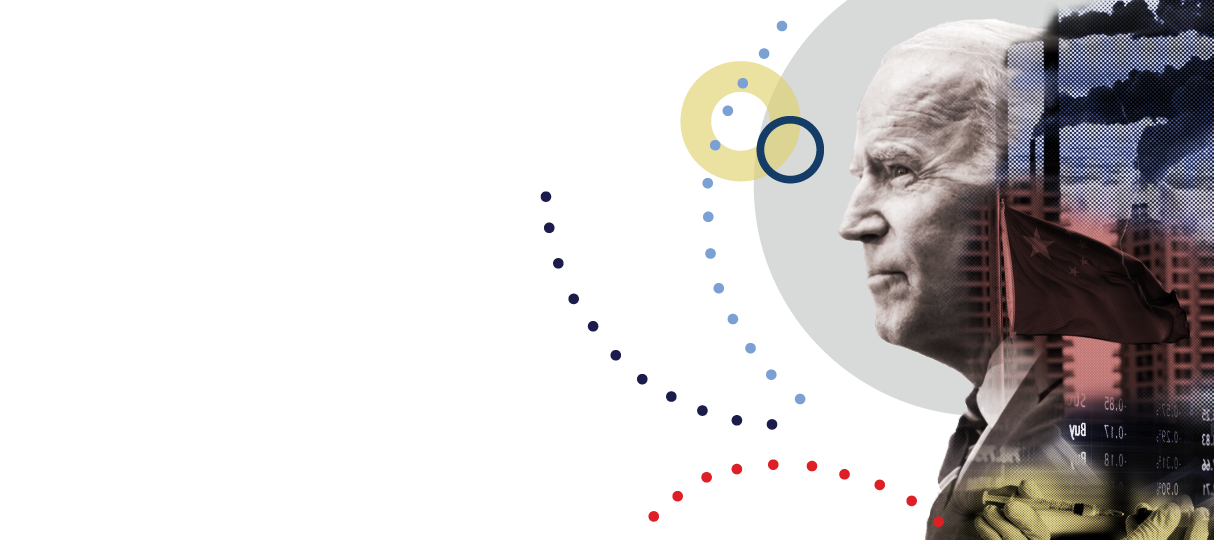A nation must think before it acts.
Access the Spring 2021 Issue of Orbis
On January 25, 2021, President Joseph Biden tweeted, “I spoke today with German Chancellor Merkel, conveying my commitment to multilateralism, the transatlantic alliance, and close coordination with allies on the range of global challenges from COVID-19 and climate change to China and Russia.” This tweet encapsulates not only the range of challenges facing the new American administration, but it also provides a compact description of the principal themes featured in this issue of Orbis. While the winter 2021 issue of Orbis sought to sketch out the parameters of a post-pandemic world, the spring 2021 volume continues that look forward in light of the obstacles that the new national security team must address.
To help dissect the international environment that the Biden administration must cope with, as well as guidance in developing the proper mindset and procedures for tackling national security questions, we sat down with General H.R. McMaster, who served as the National Security Advisor to the President (2017-2018), for his thoughts and advice. Futurist Parag Khanna sketches out an overview of the two principal foreign policy challenges: the “2Cs” (climate and China). Finally, Sophie Eisenstraut at the Munich Security Conference offers her their assessment of the new environment we are facing: one defined by the condition of a “polypandemic”—with simultaneous, overlapping transnational crises.
We bring readers a trio of articles addressing different facets of the China question. Jacques deLisle offers the second half of his assessment of where U.S.-China relations are going in the aftermath of COVID-19, while Robert Bebber takes on the unspoken question—the durability and even survivability of the Chinese Communist Party. Thomas Grant and F. Scott Kieff take their legal backgrounds and U.S. government service to connect great power competition with business activity in China.
The new administration, of course, inherits ongoing situations from its predecessors. One of the regions where great power competition or cooperation will have a major impact is the Korean Peninsula. Jaehan Park offers an assessment of why historically Korea sits at the geopolitical pivot of North Asia (hearkening back to the type of analysis that Orbis’ founding editor, Robert Strausz-Hupé, helped to pioneer). The Biden team must also deal with the continued fallout from efforts by foreign powers to interfere in U.S. elections; Clint Watts and Rachel Chernaskey offer their conclusions from what took place during the 2020 presidential campaign. Finally, Rabia Zabar considers an issue that occupied Biden’s attention when he was former President Barack Obama’s vice president—the question of extremism in Pakistan—but points to a new trend of entrepreneurialism in how these groups recruit and operate.
Alliance management will be a key priority for the new administration. Suzanne Loftus addresses the fundamentals of the trans-Atlantic relationship—and the importance of sustaining the common values that bind Europe and North America together. Christopher Miller examines the perspectives of Mira Rapp-Hooper, who herself is joining the Biden foreign policy team, on the importance of alliances for achieving U.S. national security goals.
Finally, as part of the ongoing collaboration between Orbis and Georgia Tech as to how emerging new technologies impact national security, Sarah Jacobs Gamberini and Lawrence Rubin explain how quantum sensing may impact warfare in the future and the mission of strategic deterrence—the latter is a subject that has long been a topic of interest for this journal. Indeed, the next several years may usher in sweeping changes in how and where the United States is postured for its national security—and we hope this issue helps to make sense of the issues facing U.S. decisionmakers.
On a separate note, we are pleased to welcome three new members of Orbis editorial advisory board: Ray Takeyh of the Council on Foreign Relations, Colin Dueck of George Mason University, and Damjan Krnjevic-Miskovic of the ADA University (Baku, Azerbaijan).




